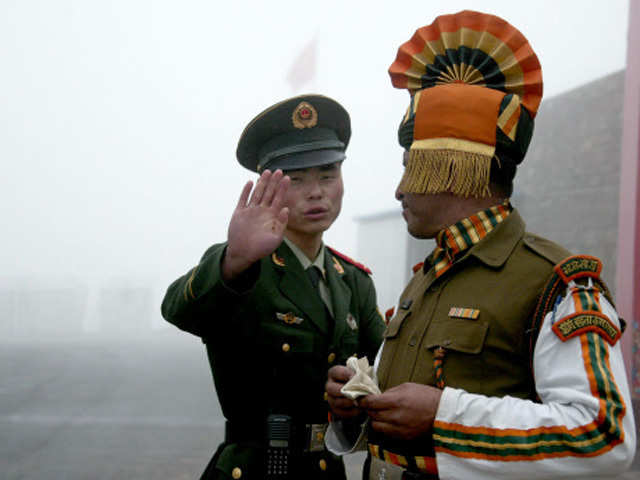News analysis |
Beijing is hopeful that India has “learned lessons” from the two-month long standoff at the Doklam plateau, which ended amicably by the withdrawal of troops from the disputed area between China and Bhutan on Monday. The matter was resolved a week before Prime Minister was to visit China for the BRICS summit, compelling analysts to label it as the main reason for the withdrawal.
Amid realignments in the region taking shape quickly, these diplomatic thaw is welcomed but there are factors which may rekindle Sino-Indo tussle; they include fast-paced work on CPEC and the new US policy for Afghanistan
“Of course we hope the Indian side will learn lessons from this incident and prevent similar things from happening again,” Foreign Minister Wang Yi told a news briefing.
The plateau, which lies at a junction between China, the north-eastern Indian state of Sikkim and the Himalayan kingdom of Bhutan, is disputed between Beijing and Bhutan. India supports Bhutan’s claim over it.
Read more: Indian troops disengage from Doklam; China claims victory
However, China looked confident and claimed that it has “forced transgressors” back.“ On the afternoon on August 28, India has pulled back all trespassing personnel and equipment to the Indian side of the boundary. Chinese personnel on the ground have verified this. The Chinese side will continue to exercise its sovereignty and uphold territorial integrity in accordance with the historical conventions,” added; foreign ministry spokeswoman on Monday.
The foreign minister also said that the meeting between Xi Jinping and Modi can be arranged only if the leaders have the willingness to meet
India, on the other hand, claims it as a testament to its diplomatic nous which made China blink. Further, India also believes that kept China at bay on a matter concerning an ally.
We can cooperate too
Beijing’s top diplomat expressed the hope that both countries can cooperate on various matters in spite of “natural tiffs”. He said: “It’s normal for the two giant neighbors to have differences, what’s important is that we put these problems in the appropriate place, and appropriately handle and control them in the spirit of mutual respect and based on the consensus of both countries’ leaders.” He added that there is huge potential for cooperation between the two countries.
Read more: US silence on Doklam issue is ominous
China is upset with India’s support to the Dalai Lama. In April, Beijing took exceptions at a weeklong trip by the Dalai Lama to Arunachal Pradesh, which is claimed by China as “southern Tibet
Ties between the two countries have deteriorated owing to other developments too, including India’s boycott of China’s Belt and Road initiative ostensibly due to the China-Pakistan Economic Corridor (CPEC). Moreover, China is upset with India’s support to the Dalai Lama. In April, Beijing took exceptions at a weeklong trip by the Dalai Lama to Arunachal Pradesh, which is claimed by China as “southern Tibet”. India repeated then that “every inch” of the north-eastern state is a part of its territory.
The matter was resolved a week before Prime Minister was to visit China for the BRICS summit, compelling analysts to label it as the main reason for the withdrawal
“We hope that China and India will join hands and work together for the rejuvenation of Asia,” he said. The foreign minister also said that the meeting between Xi Jinping and Modi can be arranged only if the leaders have the willingness to meet.”
Read more: Doklam is a riddle, wrapped in a mystery, inside an enigma
Amid realignments in the region taking shape quickly, these diplomatic thaw is welcomed but there are factors which may rekindle Sino-Indo tussle; they include fast-paced work on CPEC and the new US policy for Afghanistan. If anything, the resolution of the Doklam issue has ended one battle but the war goes on. Yet trading ties between the two countries will keep temperatures in check.














